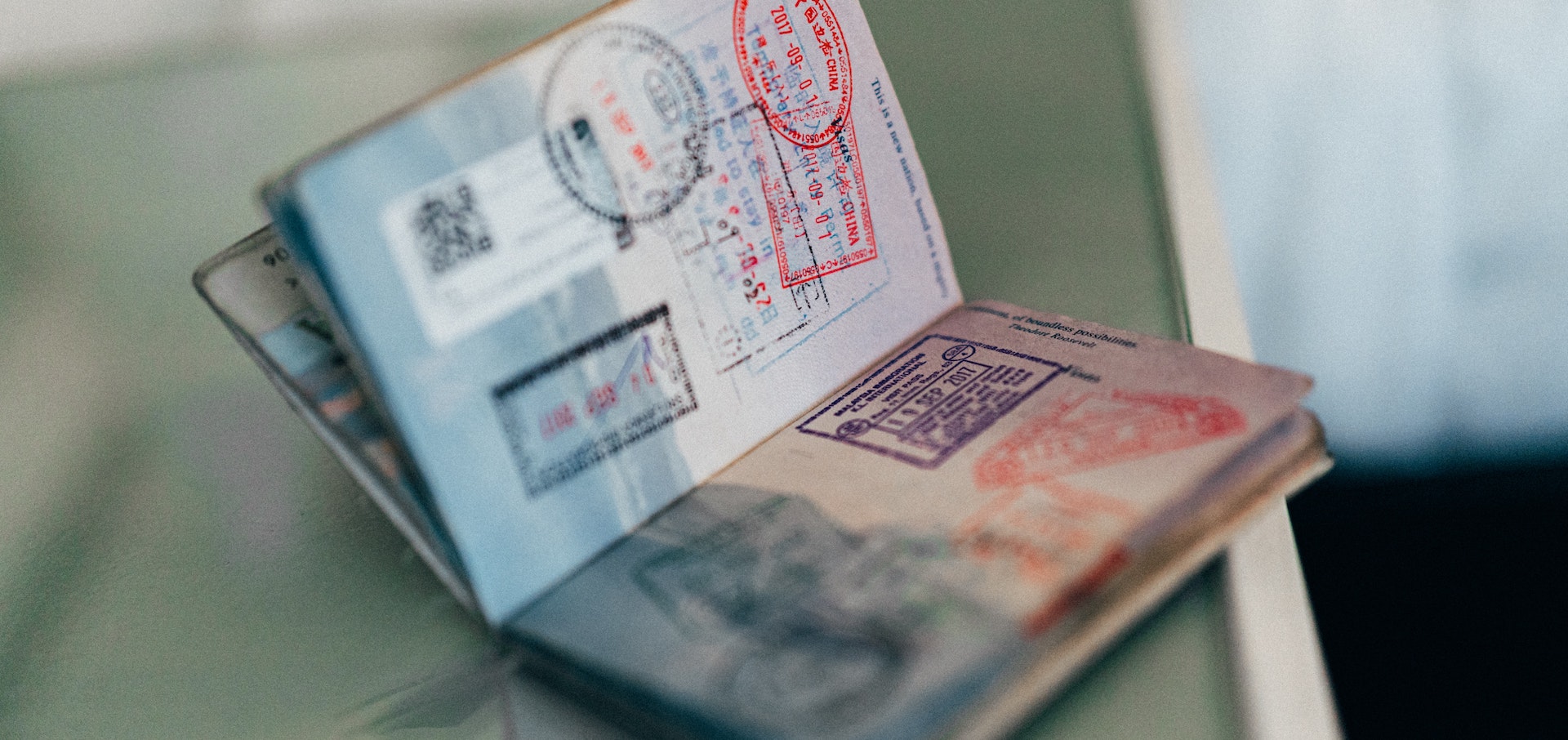Welcome to our dynamic law practice located right here in the Miami area! We will work with you to help you realize your immigration goals.
Our practice offers premier immigration services to individuals throughout Miami to friends and family of those in the area. We counsel on a range of immigration matters, spanning employment, investor, institutional, and family-based immigration, as well nonimmigrant visa petitions. We offer guidance on adjusting, changing, or extending status, and guide those who are abroad, seeking to consular process before entering the United States.
Immigration Services in Miami
There are many reasons why you may need to talk to an immigration lawyer in the Miami area. You or a family member may have a legal issue with your immigration process, or you may seek to begin a new immigrant process to obtain work visa status or US lawful permanent residency.
As immigration lawyers based in South Florida, we can help you with many concerns, including:
- EB-1 Extraordinary Ability Petitions
- EB-2 National Interest Waiver Petitions
- EB-2 PERM Petitions
- EB-3 PERM Petitions
- Family Based – Marriage and Immediate Relative I-130 Petition Cases
- Adjustment of Status or Change of Status
- Nonimmigrant Visa Cases
- Immigrant Consular Processing
- Nonimmigrant Consular Processing
- Naturalization Cases
Choosing the Right Visa to Pursue for Lawful Permanent Resident (LPR) Status
As a foreign national, there are several types of visas that may allow you to become a lawful permanent resident of the United States, according to immigration law. Our immigration lawyers can help you decide which one would work best depending on your situation and how likely you are to be approved for the type of visa you want. In all cases, we will ensure you have all the proper documents needed to apply.
Employment Based Visas
Employment First Preference (EB-1): Priority Worker and Persons of Extraordinary Ability
There are three sub-groups within the EB-1 visa category:
- Persons with extraordinary ability in the sciences, arts, education, business, or athletics. Applicants in this category must have extensive documentation showing sustained national or international acclaim and recognition in their fields of expertise. Such applicants do not have to have specific job offers, so long as they are entering the U.S. to continue work in the fields in which they have extraordinary ability. Such applicants can file their own Immigrant Petitions for Alien Worker, Form I-140, with the USCIS.
- Outstanding professors and researchers with at least three years experience in teaching or research, who are recognized internationally. Applicants in this category must be coming to the U.S. to pursue tenure, tenure track teaching, or a comparable research position at a university or other institution of higher education. The prospective employer must provide a job offer and file an Immigrant Petition for Alien Worker, Form I-140, with the USCIS.
- Multinational managers or executives who have been employed for at least one of the three preceding years by the overseas affiliate, parent, subsidiary, or branch of the U.S. employer. The applicant’s employment outside of the U.S. must have been in a managerial or executive capacity, and the applicant must be coming to work in a managerial or executive capacity. The prospective employer must provide a job offer and file an Immigrant Petition for Alien Worker, Form I-140, with the USCIS.
Employment Second Preference (EB-2): Professionals Holding Advanced Degrees and Persons of Exceptional Ability
A Second Preference applicant must generally have a labor certification approved by the Department of Labor. A job offer is required and the U.S. employer must file an Immigrant Petition for Alien Worker, Form I-140, on behalf of the applicant. Applicants may apply for an exemption, known as a National Interest Waiver, from the job offer and labor certification if the exemption would be in the national interest. In this case, the applicant may self-petition by filing the Immigrant Petition for Alien Worker, Form I-140, along with evidence of the national interest. Professionals Holding Advanced Degrees and Persons of Exceptional Ability receive 28.6 percent of the yearly worldwide limit of employment-based immigrant visas, plus any unused visas from the Employment First Preference category.
There are two subgroups within this category:
- Professionals holding an advanced degree (beyond a baccalaureate degree), or a baccalaureate degree and at least five years progressive experience in the profession.
- Persons with exceptional ability in the sciences, arts, or business. Exceptional ability means having a degree of expertise significantly above that ordinarily encountered in the sciences, arts, or business.
Employment Third Preference (EB-3): Skilled Workers, Professionals, and Unskilled Workers (Other Workers)
An EB-3 visa applicant must have an approved Immigrant Petition for Alien Worker, Form I-140, filed by the prospective employer. All such workers generally require labor certification approved by the Department of Labor. Skilled Workers, Professionals, and Unskilled Workers (Other Workers) receive 28.6 percent of the yearly worldwide limit of employment-based immigrant visas, plus any unused visas from the Employment First Preference and Second Preference categories.
There are three subgroups within this category:
- Skilled workers are persons whose jobs require a minimum of 2 years training or work experience that are not temporary or seasonal.
- Professionals are members of the professions whose jobs require at least a baccalaureate degree from a U.S. university or college or its foreign equivalent degree.
- Unskilled workers (Other workers) are persons capable of filling positions that require less than two years training or experience that are not temporary or seasonal.
Family Visas
Suppose you are looking for a way for you or for your close family relatives to get an immigrant visa. In that case, there are several visa categories through which you may apply, depending on the situation. Here are some of them:
- IR1 or CR1 Visa – This is an immigrant visa for a spouse of a U.S. citizen
- K-3 – For a spouse of a U.S. citizen who is awaiting approval of an I-130 immigrant petition
- K-1 – For a fiancé to marry a U.S. citizen and reside in the U.S.
- IR3, IR4, IR5, F1, F3, F4 – For certain family members of U.S. citizens
- F2A, F2B – For certain family members of lawful permanent residents
Each one of the above options has specific requirements and deadlines that must be met. Also, depending on the applicant’s relationship with the U. S. citizen or green card holder, the wait times to obtain these visas may vary greatly. Our attorneys will provide you with further details and
Citizenship and Naturalization
As a foreign national, you have the opportunity to receive U. S. citizenship after being a resident for 5 years, or three years, if residency was obtained through a Marriage Petition. The process can be complex and can help you every step of the way.
Several ways are open to you when you want to become an American citizen. After meeting all eligibility requirements, you may apply when:
- You have been a permanent resident for at least five years.
- You have been a permanent resident for at least three years when you want to file as a spouse of a U. S. citizen.
- You have qualifying service in the U. S. armed forces.
- Your child was born outside the U. S. and is currently residing in a foreign country, and you are an American citizen.
Schedule A Consultation Today
Immigration can be a frustrating and scary experience. You have so much on the line, and the idea that you might make a mistake with an application may keep you from enjoying a good night’s sleep.
At Extraordinary Immigration, we are more than ready to help you with this daunting task. There are dozens of rules and steps that must be taken, depending on your status and the visa you want. There may also be situations where you will be eligible for more than one type of visa. Working with an experienced attorney can put your mind at ease and help you reach your immigration goals. Call us for a no-obligation consultation today.

